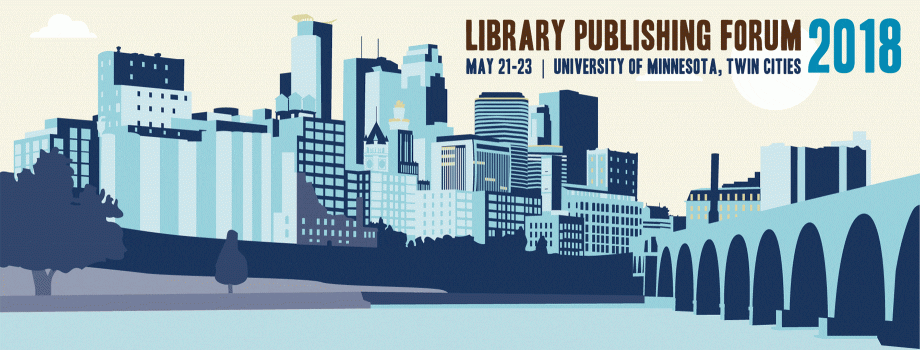June 8, 2018
By Melanie Schlosser
Editor’s note: This is part of a series of reflections by community members on the recent Library Publishing Forum. See the whole series. This post is guest written by Talea Anderson, Scholarly Communication Librarian at Washington State University and recipient of a Library Publishing Forum First-Time Attendee Scholarship.
In May I attended my first Library Publishing Forum with support kindly provided by LPC. The conference was filled with meaningful experiences for me. I’d mention in particular the time I was able to spend with the editorial staff of Kairos as part of KairosCamp and the opportunity I had later in the week to participate in the first pilot of the Library Publishing Curriculum. I manage a small, service-focused scholarly communication program at Washington State University, and these two workshops provided a glimpse of the editorial services that help keep journals running. On my campus, we are currently moving forward with supporting faculty who would like to create and publish open educational resources and I came away with a better understanding of the kinds of needs these faculty members may have when it comes to preparing, editing, and publishing their work.
These workshops were a great introduction to editorial work and publishing services, but for me the most meaningful part of LPF came on the first day when Catherine Kudlick spoke about web accessibility (slides coming soon). Kudlick invited us as library publishers to build accessibility into our workflows from the start, and to see this work not as punitive but as a service to all people, including disabled communities. This message is certainly important but I connected to it on an unexpectedly personal level. I learned, on introducing myself to Kudlick after her keynote, that we share the same eye condition and face similar challenges when it comes to doing things like presenting to audiences and reading texts on mobile devices. I rarely encounter others who can relate to the way I see—it’s rarer still to find people in academia who cope with vision loss while engaging with publishing and scholarly communication. The brief chat I had with Kudlick was, to say the least, a special opportunity for me. In the end, thanks in part to this encounter, I came away from LPF feeling inspired to continue improving access to information for everyone, including people like me and Kudlick and many others who benefit from inclusive publishing practices.
Talea Anderson
Scholarly Communication Librarian
Washington State University

